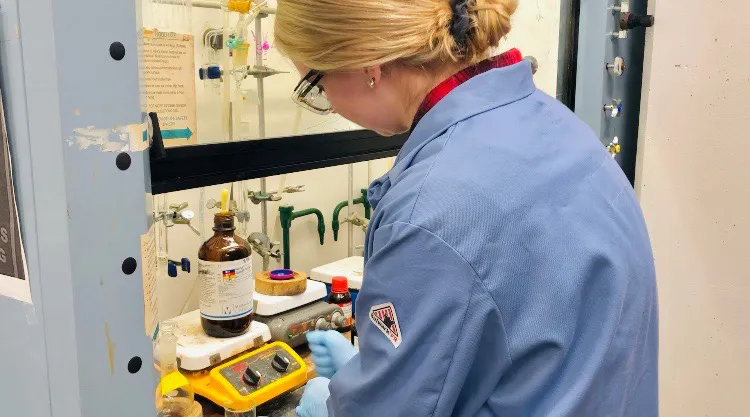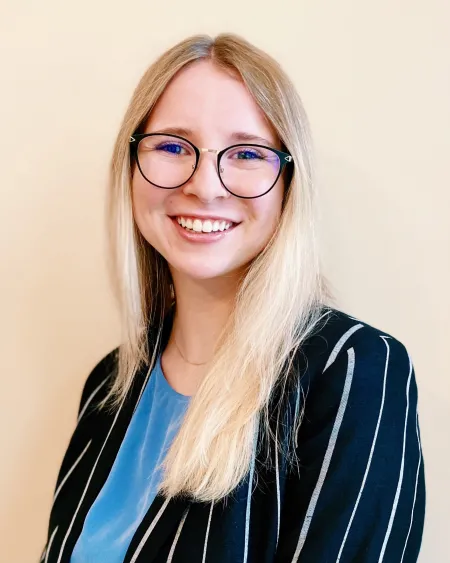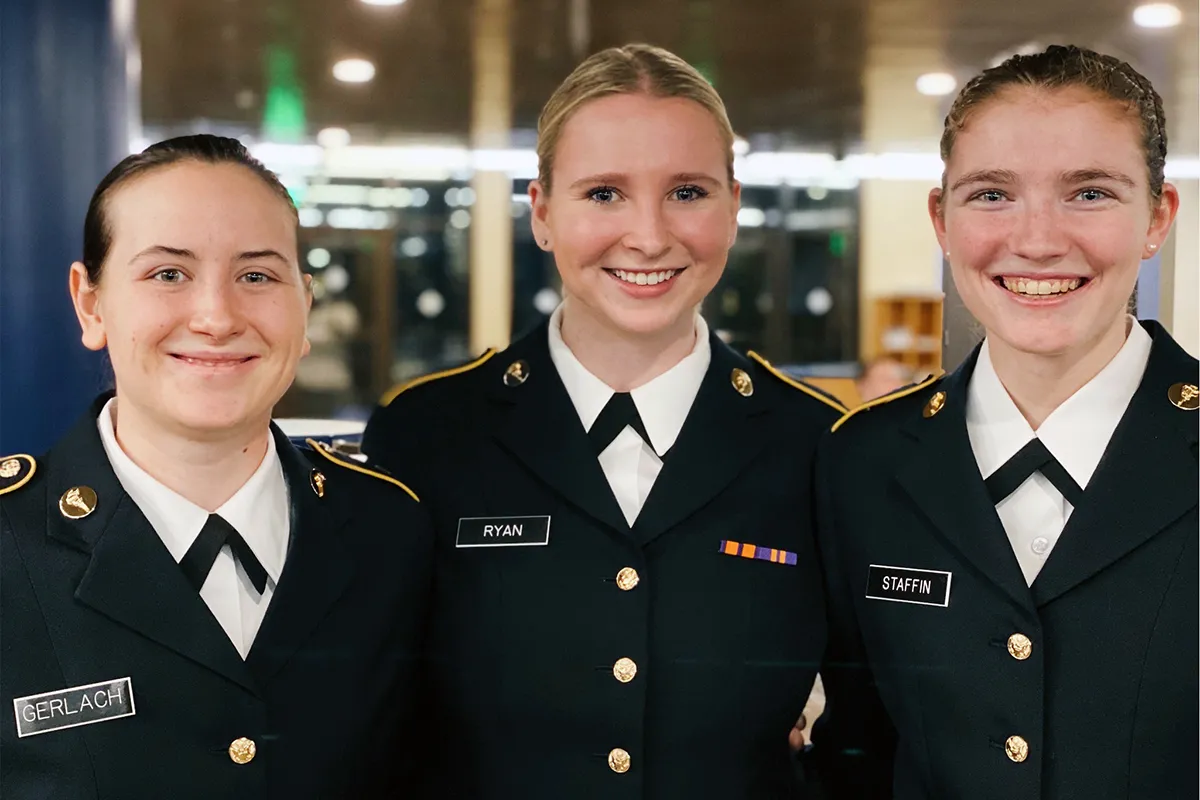Ithaca College Junior Beth Ryan ’22 is one of just 410 students nationally to receive the Barry Goldwater Scholarship.
Presented by the Barry Goldwater Scholarship and Excellence in Education Foundation, the award is given annually to sophomores and juniors who plan to pursue research careers in the natural sciences, mathematics, or engineering. From an estimated pool of over 5,000 college sophomores and juniors, more than 1,200 students were nominated to compete for the scholarship this year, and only 410 were chosen.
“The Goldwater is one of the oldest and most distinguished and competitive scholarships in STEM,” said Melanie Stein, dean of IC’s School of Humanities and Sciences. “Winning this award reflects the quality of Beth’s work at IC, as well as the promise she shows for future contributions to biochemistry.”



